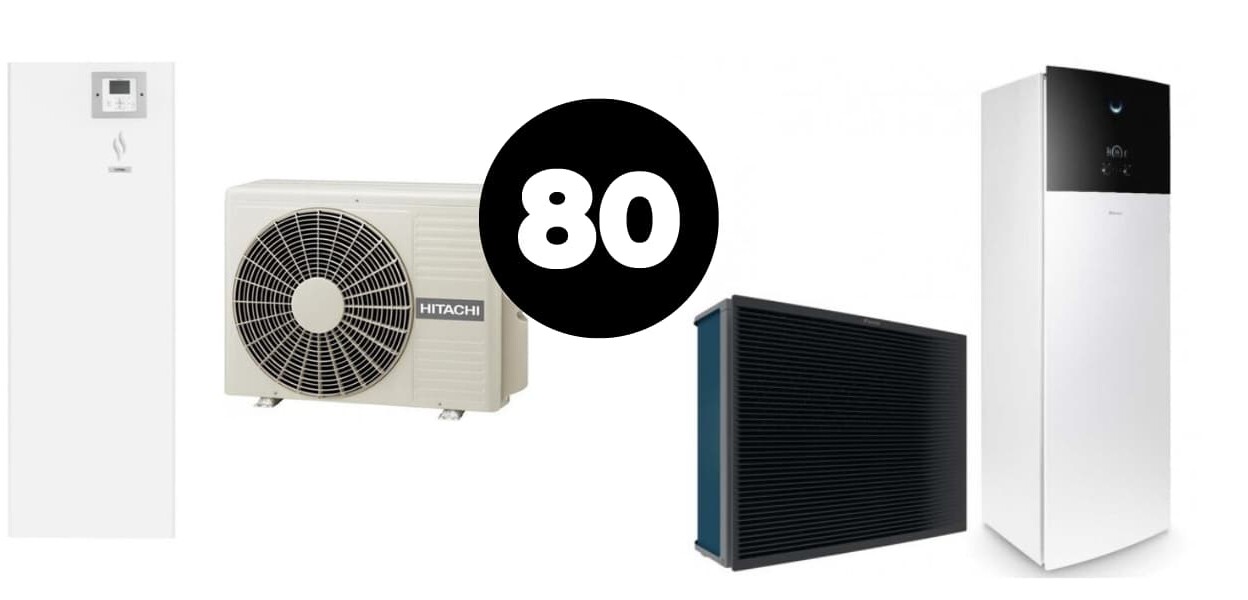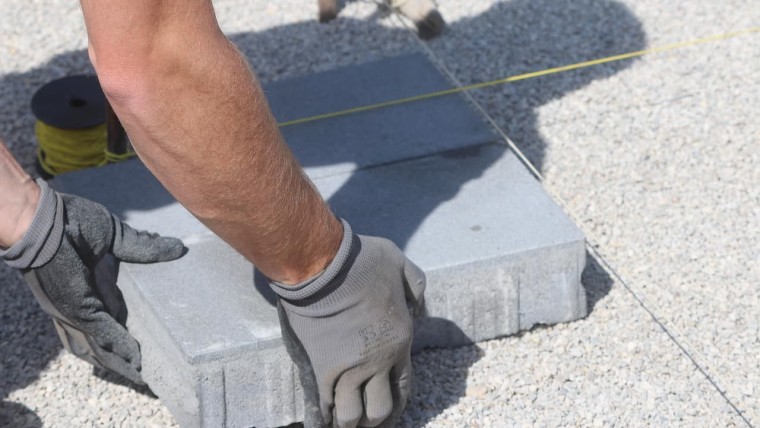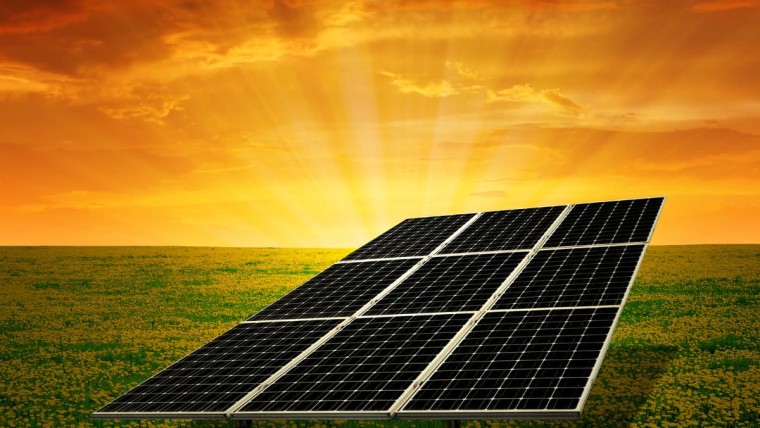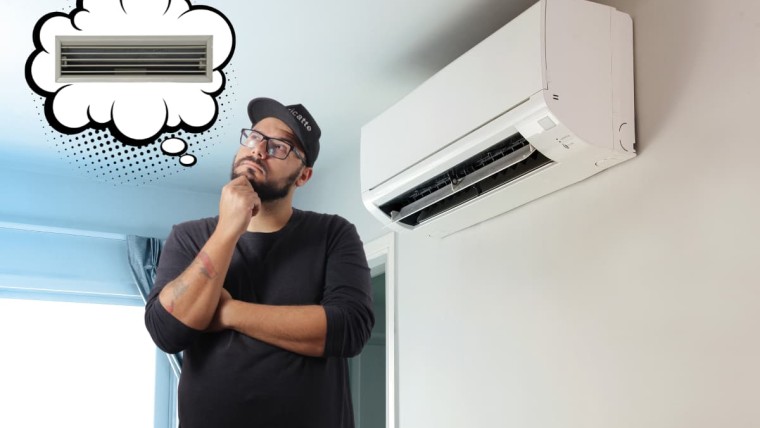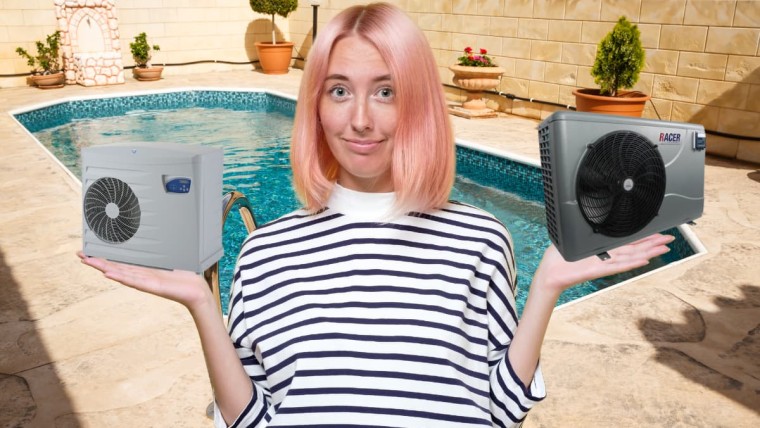Is the oil-fired boiler that powers your central heating system starting to show signs of fatigue? Do you need to replace it? Choose performance and savings with a high-temperature heat pump.
As its name suggests, this heating equipment delivers high heat output with low power consumption. Easy to install and eligible for a number of financial incentives, particularly in France, the high-temperature heat pump is an option to consider as part of your energy renovation project.
What is the best heat pump high temperature on the market? What are the advantages and disadvantages of a high-temperature heat pump? What is the overall cost of an 80°C heat pump? Find out in this guide.
What is a high-temperature heat pump?
Operating on the same principle as a conventional heat pump, the high-temperature heat pump is able to heat the water in the heating circuit to higher temperatures: in concrete terms, we're talking about temperatures ranging from 65° C to 80° C (the temperature of most older heating systems), instead of 45° C.
This type of device is therefore particularly suited to regions with harsh winters, where the thermometer can drop as low as -20° C. It's also ideal if you want to heat your hot water via the heat pump. Thanks to the High-Temperature heat pump, you can comply with the standard and heat water to over 65°C to eliminate the bacteria responsible for Legionnaire's disease, and ensure hot water for the whole family, even during the harshest winters.
If you have a reversible high-temperature heat pump, you'll also be able to enjoy cool air in summer. So keep this in mind when choosing your high-temperature heat pump, especially if your region has a significant temperature differential.
Operating on the air-to-water heat pump principle, these heat pumps harness the energy of the air to heat the home. To do this, they need to be connected to a hydraulic central heating system, making them compatible with existing heating circuits fed by a gas or oil-fired boiler.
When should I choose a high temperature heat pump?
Type of home, heating requirements, existing heating system... the choice of a high-temperature heat pump depends on a number of factors.
Is your home equipped with old radiators requiring high-temperature hot water, and do you have an energy renovation project in mind? If so, the high-temperature heat pump is the solution best suited to your situation, replacing an oil or gas-fired boiler without having to modify your entire system.
Bear in mind that this type of heating is far more economical and environmentally friendly than an old boiler running on fossil fuels, since it uses the calories naturally present in the outside air to regulate the temperature in your home.
Suitable for regions with very cold winters, the high-temperature heat pump provides optimum thermal comfort and energy efficiency far superior to conventional models.
It's also worth remembering that choosing a high-temperature heat pump can make you eligible for government grants. In France, for example, your energy renovation project can be partially financed by MaPrimeRénov', the Prime Energie, the Prime Coup de Pouce Chauffage and the Crédit d'Impôt Transition Energétique.
High-temperature heat pump: how does it work?
To fully understand how a high-temperature heat pump works, we need to remind you of the technical and thermodynamic principles that govern this type of equipment.
The high-temperature heat pump captures calories from the outside air and transfers them inside the home to heat the water in the heating circuit. But unlike conventional heat pumps (generally limited to 45° C), high-temperature heat pumps can heat water up to 65° C, or even 80° C for premium models.
At the heart of the high-temperature heat pump are 4 essential components: the evaporator, compressor, condenser and expansion valve:
- The evaporator captures heat from the air by circulating a liquid refrigerant. Under the effect of the heat captured, the fluid evaporates and transforms into a gas;
- The compressor raises the pressure and temperature of the gaseous refrigerant, thus increasing its energy potential;
- The condenser transfers heat from the gaseous refrigerant to the water in the heating circuit. As the heat is transferred, the fluid condenses and returns to the liquid state;
- The regulator lowers the pressure and temperature of the liquid refrigerant before it returns to the evaporator, enabling the cycle to be restarted.
How do you measure the efficiency of a high-temperature heat pump?
The efficiency of a high-temperature heat pump is measured by the coefficient of performance (COP), a key indicator that represents the ratio between the amount of heat produced and the amount of electrical energy consumed.
The higher the COP, the more efficient the heat pump. For example, a high-temperature air-to-water heat pump with a COP of 4, with conditions of +7° C outside and a produced water temperature of 70° C, consumes 1 kWh of electricity to produce 4 kWh of heat. So, for every kilowatt-hour of electrical energy consumed, the heat pump generates four times as much thermal energy to heat your home. In other words, 75 % of the energy produced comes from the renewable energy source, while only 25 % is consumed in the form of electricity.
Note, however, that the COP of a high-temperature heat pump is generally slightly lower than that of a conventional heat pump.
High-temperature heat pumps: what are the advantages?
The high-temperature heat pump offers a number of advantages, starting with its ability to produce hot water at temperatures of up to 80°C, ensuring comfortable heating even in the coldest weather. This remarkable level of performance is coupled with equally impressive energy efficiency.
In addition to heating your home, the high-temperature heat pump also helps produce domestic hot water, an added benefit for households (since it's an air-to-water heat pump).
The high-temperature heat pump is ideal for replacing an existing boiler without having to modify the entire central heating circuit, particularly in the case of old cast-iron radiators.
Because it's an environmentally-friendly solution, the high-temperature heat pump is eligible for government financial aid (depending on the country), which greatly reduces the initial investment and accelerates the project's payback.
Finally, there are reversible high-temperature heat pumps, capable of cooling your home at lower cost in summer.
The disadvantages of high-temperature heat pumps?
High-temperature heat pumps may have many advantages, but they also have a few disadvantages to consider before taking the plunge. Disadvantages that mainly relate to cost, ease of use and installation options.
Indeed, the initial investment to install a high-temperature heat pump is relatively high, compared with a low-temperature heat pump, for obvious reasons of power. This type of equipment will also tend to consume more electricity to reach the required temperatures, which translates into a slightly higher environmental impact than a conventional heat pump, but also higher operating costs. We'll talk more about this below in the price section.
Finally, bear in mind that a high-temperature heat pump uses an outdoor unit that can be bulky and noisy. The purchase of an anti-noise housing may be necessary.
Install and maintain a high temperature heat pump
High-temperature heat pumps must be selected, installed and maintained by a qualified professional. The investment is substantial, and the equipment is designed to ensure your thermal comfort for at least two decades. In France, for example, the use of an RGE-certified professional (Reconnu Garant de l'Environnement) is mandatory to qualify for government financial aid (for installation).
If your home is already equipped with a central heating circuit, installation of your high-temperature heat pump will be simpler, as all you have to do is connect the indoor and outdoor units to your existing system.
Installing a high-temperature heat pump involves fitting and connecting the indoor and outdoor units, electrical work, handling the refrigerant, and possibly connecting to the domestic hot water circuit.
In addition to installation, regular maintenance of your high-temperature heat pump is essential to ensure that it runs smoothly and lasts as long as possible. To take France as an example, a decree stipulates that individual heat pumps must be serviced every two years. This maintenance, carried out by a qualified technician, includes cleaning, adjusting the unit and checking the system for leaks. You will receive a certificate at the end of the service.
Bear in mind, however, that this mandatory maintenance must be carried out annually if the refrigerant charge of your high-temperature heat pump exceeds 2 kilograms or around 12 kWh.
80° C high-temperature heat pump: factors influencing price
What determines the price of a high-temperature heat pump? In addition to brand and model, a number of other factors come into play.
This applies in particular to power output, energy performance (COP, SEER, energy class) and additional functions (reversible, domestic hot water production, technology, etc.). Technical aspects and installation conditions will also influence the price of the heat pump, as will the constraints linked to your home, the complexity of installation, the presence or absence of an old heating circuit and the time required for installation.
Generally speaking, the installation of an air-to-water heat pump of any type will cost you between 10,000 and 17,000 euros on average (materials and labor). As a reminder, the price of a high-temperature heat pump is often higher than that of a conventional heat pump, a price differential that can be explained by the technology and robustness of this type of device, designed to operate at very low outdoor temperatures (close to -20° C).
Note also that the work may be more expensive if the central heating circuit has not yet been installed. In this case, the extra cost is estimated at between 3,000 and 8,000 euros, depending on the number of radiators installed or the choice of underfloor heating. Financial assistance from the French government, the eco-PTZ and reduced VAT, considerably reduce the initial investment.
Which are the best high-temperature heat pumps?
Daikin, Mitsubishi, Atlantic, Hitachi... many manufacturers offer high-performance high-temperature heat pumps. To help you make sense of it all, here's a small selection of the best available. best high-temperature heat pumps of the market.
Daikin high temperature heat pump 80° C
The high-temperature heat pump Daikin Altherma 3H HT 80°C combines innovation and performance to provide you with a reliable, 100 % thermodynamic heating system. Capable of producing hot water at 80°C, it comprises an outdoor unit and a hydraulic module that provide both heating and domestic hot water production. Thanks to its cutting-edge Inverter technology, the Daikin Altherma high temperature is perfectly suited to the needs of renovation projects, easily replacing an existing boiler.
Daikin high temperature heat pump prices from €6,919.45 incl. VAT.
High temperature heat pump 80° C Mitsubishi
Mitsubishi, heat pump manufacturer since 1921, offers a wide range of high-temperature models designed to adapt to all housing configurations (heating only, reversible, domestic hot water production, etc.): Mitsubishi Ecodan Power Inverter Silence 8 R410A, Mitsubishi Ecodan Zubadan Silence 11 R410A, Mitsubishi Ecodan Zubadan 14 Tri Reversible R410A... Les Mitsubishi high-temperature heat pumps stand out for their innovative, patented technology. One example is the helically wound gas cooler, specially designed by Mitsubishi Electric to maximize performance while saving energy.
Prices for Mitsubishi high-temperature heat pumps For more information, please estimate between €12,000 and €16,000.
Atlantic high temperature heat pump 80° C
A French manufacturer based in La Roche-sur-Yon since 1968, Atlantic offers several models of high-temperature heat pumps, including the Atlantic Alféa Excellia Duo A.I., a three-phase air-to-water heat pump equipped with an Inverter temperature controller that optimizes consumption by adapting the motor's power to requirements for greater savings.
Compatible with the Cozytouch Atlantic connected solution, it offers remote control and optimal comfort with complete peace of mind.
Designed to guarantee constant comfort even in the coldest weather, the heat pump features a built-in electric booster to compensate for temperature drops. Atlantic's patented coaxial heat exchanger ensures long-lasting, reliable performance. Compatible with various emitters such as hydraulic underfloor heating, radiators or dynamic radiators, Atlantic's Alféa Excellia A.I. is an ideal solution for comfort in winter and summer alike.
Atlantic high-temperature heat pump prices For more information, please estimate between €8,000 and €16,000.
Hitachi 80° C high temperature heat pump
The Hitachi Yutaki S80 Combi high-temperature heat pump is a high-performance, innovative solution for boiler replacement, considered one of the best very-high-temperature heat pumps on the market. Designed to adapt to all types of existing installations, it is capable of producing hot water at 80°C, even when the outside temperature reaches -20°C, without the need for an electrical back-up.
With one of the best COPs on the market, reaching 5.00 (RWH-4.0WHVNPE - conditions 7°C/35°C), the Yutaki S80 Combi High Temperature stands out for its exclusive design, which enables it to maintain high performance all year round, thanks to high SCOPs (seasonal COPs). This Hitachi air-to-water heat pump is ideal for renovation projects, offering an ecological and economical alternative to traditional heating systems.
Hitachi high temperature heat pump prices For more information, please calculate between €6,500 and €13,000.
High temperature heat pumps in brief
- A high-temperature heat pump works like a conventional heat pump, but can heat the water in the heating circuit to higher temperatures (65°C to 80°C for the most efficient);
- The major advantage of the high-temperature heat pump lies in its excellent efficiency, enabling it to be used even in bitterly cold climatic conditions (-20° C). It is also ideal for renovating an existing hydraulic heating system (oil or gas boiler);
- The cost of purchase and installation is relatively high, but is largely offset by government subsidies;
- The efficiency of a high-temperature heat pump is measured by its coefficient of performance (COP), which is generally slightly lower than that of a conventional unit. The SCOP and energy class are also used to measure the energy performance of a high-temperature heat pump;
- Installing a high-temperature heat pump requires the services of a qualified professional, and regular maintenance to ensure proper operation and extend the unit's lifespan;
- The price of a high-temperature heat pump is influenced by various factors, such as power, performance, additional functions, technical aspects, installation conditions and housing constraints;
- Installing a high-temperature air-to-water heat pump costs between €8,000 and €16,000 on average, including materials and labor.

Reda T.
Reda holds a PhD in finance and specializes in renewable energy economics. He combines financial expertise with an interest in sustainability, writing not only on the financing of green projects, but also on more general topics and frequently asked questions in this field.
